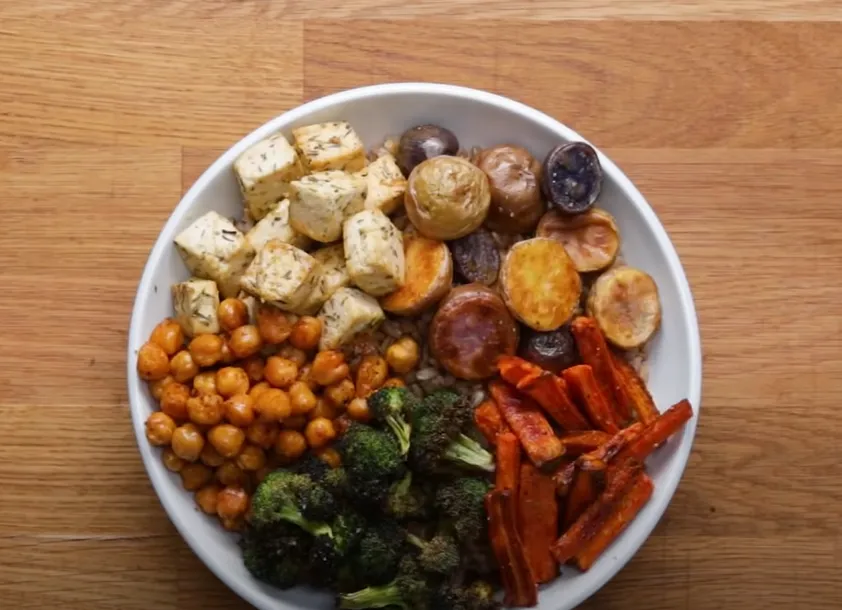- It plays a vital role in biological processes such as gene expression and DNA replication
- It offers health benefits, including immune system support, muscle recovery, and regulation of metabolism
- Top food sources of nucleic acids include seafood, nuts, vegetables, mushrooms, yeast, and beef
- Incorporating a variety of nucleic acid-rich foods into your diet is important for optimal health
- It is crucial for DNA replication, cellular metabolism, gene expression, and overall human health
Do you know that nucleic acids are essential for your overall health?
Incorporating foods with nucleic acids into your diet can have numerous benefits.
From improving protein synthesis to enhancing muscle recovery, these foods play a crucial role in vital biological processes.
Here, we will explore the importance of nucleic acids, discuss the top sources of nucleic acids in your diet, and highlight their health benefits.
So, get ready to discover the power of nucleic acids in your meals!
The Role of Nucleic Acids in the Body
Nucleic acids play a vital role in almost every biological process in your body.
These molecules are essential for gene expression, DNA replication, protein synthesis, cell division, and more.

In gene expression, nucleic acids provide the instructions for creating proteins that determine your physical traits and overall health.
During DNA replication, nucleic acids ensure that the genetic information is accurately copied and passed on to new cells.
In protein synthesis, nucleic acids help in the production of proteins that carry out various functions in your body.
They also play a crucial role in cell division, ensuring that the genetic material is properly distributed to daughter cells.
Nucleic acids are involved in hereditary diseases, as mutations in these molecules can lead to genetic disorders.
Additionally, nucleic acids have revolutionized the field of genetic engineering, allowing scientists to manipulate and modify genes for various purposes.
Furthermore, nucleic acids have been implicated in the development of cancer, as alterations in DNA can lead to uncontrolled cell growth.
Understanding the role of nucleic acids in these processes is crucial for advancing our knowledge of genetics and developing treatments for various diseases.
Now, let’s explore the health benefits of foods rich in nucleic acids.
Health Benefits of Foods that Contain Nucleic Acids
You can experience numerous health benefits by incorporating foods with nucleic acids into your diet.
- Immune system support: Foods rich in nucleic acids can provide significant support for your immune system, helping to strengthen its function and protect against illnesses.
- Quicker muscle recovery: Consuming nucleic acid-rich foods can promote quicker muscle recovery after physical activity, allowing for faster repair and growth.
- Reduction of oxidative stress: Nucleic acids have antioxidant properties that can help reduce oxidative stress in the body, which is linked to various chronic diseases and aging.
- Regulation of metabolism: Just like nonacidic foods, foods with nucleic acids can help regulate your metabolism, which is essential for maintaining a healthy weight and overall well-being.
Top Foods With Nucleic Acids
When it comes to incorporating nucleic acids into your diet, there are several top sources to consider.
Seafood, such as fish and shellfish, is a great option, as it provides a good amount of nucleic acids along with other essential nutrients.
Nuts, vegetables (like Chinese cabbage and spinach), mushrooms, and yeast are also excellent sources of nucleic acids that you can easily include in your meals.
Seafood

Sardines contain the highest levels of nucleic acids among seafood, making them a top source in your diet.
Seafood is not only delicious but also offers numerous benefits for your health.
It is rich in protein, long-chain omega-3 fats, vitamin D, selenium, and iodine.
These nutrients support cardiovascular health, reduce inflammation, and promote brain function.
When consuming seafood, it’s important to follow some guidelines to ensure safety.
Choose sustainable seafood options to protect the environment and maintain fish populations.
Cook seafood using methods like grilling, baking, or steaming to preserve its nutritional value.
If you’re not a fan of seafood, you can still get nucleic acids from other sources like meat, legumes, and mushrooms.
Incorporating these foods into your diet can help you meet your nucleic acid needs and support overall health.
Nuts

Nuts are one of the most convenient and delicious foods with nucleic acids in your diet.
They provide essential proteins and unsaturated fats, making them a nutritious choice.
When it comes to heart health, nuts have been shown to have numerous benefits.
They contain healthy fats that can lower cholesterol levels and reduce the risk of heart disease.
Additionally, nuts are rich in antioxidants, which help protect against oxidative stress and inflammation.
While nuts are a great source of nucleic acids, it’s important to consider other food sources as well.
Vegetables, such as Chinese cabbage, broccoli, and spinach, also contain nucleic acids and play a vital role in preventing chronic diseases.
So, while nuts are a great option for nucleic acids, it’s important to have a balanced diet that includes a variety of foods.
Vegetables

If you’re looking to incorporate more foods with nucleic acids into your diet, vegetables are a top source to consider.
Vegetables not only provide essential vitamins and minerals, but they are also rich in nucleic acids.
Chinese cabbage, broccoli, leeks, spinach, cauliflower, beans, and soybeans are vegetables that contain significant amounts of nucleic acids.
These vegetables offer numerous health benefits, including regulating blood pressure and blood sugar levels and preventing stroke, heart disease, digestive troubles, eyesight problems, and even cancer.
To retain the maximum amount of nucleic acids in vegetables, it is best to cook them using methods like steaming or stir-frying.
Mushrooms

Mushrooms are a versatile ingredient that can be a top source of nucleic acids in your diet, so consider adding them to your meals.
Not only are mushrooms delicious, but they also offer numerous health benefits.
They are low in cholesterol, fat, calories, and sodium, making them a nutritious choice.
Mushrooms are high in nutrients like vitamin E and selenium, which are important for overall health.
Additionally, certain types of mushrooms, such as flat, whitecap, cep, and oyster mushrooms, have high levels of nucleic acids.
These nucleic acids are essential for various biological processes in your body.
So, whether you use mushrooms in mushroom recipes, cultivate them at home, or even forage for them, incorporating mushrooms into your diet can be a great way to boost your nucleic acid intake.
Now, let’s move on to other best foods with nucleic acids
Yeast
If you’re looking for another top source of nucleic acids in your diet, yeast is a great option.
Here are some benefits of incorporating yeast into your meals:
- Yeast is a source of nucleic acids, which are essential for protein synthesis and overall health.
- It can be used in various cooking recipes, such as bread, pizza dough, and even vegetarian dishes.
- Contrary to popular belief, yeast does not directly contribute to gout. Gout is caused by the conversion of purines into uric acid, and yeast itself does not contain high levels of purines.
- Yeast is a rich source of B vitamins, including thiamine, riboflavin, and niacin, which are important for energy production and maintaining a healthy nervous system.
Beef

When it comes to incorporating top sources of nucleic acids into your diet, beef is a great option for you.
Beef is not only delicious, but it also provides numerous benefits for your health.
Different cuts of beef contain varying levels of nucleic acids, with organ meats like liver and kidney having higher concentrations.
Cooking methods such as grilling and broiling can help preserve the nucleic acids in beef.
When compared to other foods with nucleic acids, beef stands out as a rich and flavorful choice.
Additionally, beef consumption has been linked to improved muscle recovery and decreased risk of metabolic syndrome.
However, it’s important to note that excessive beef consumption may lead to an increased risk of gout due to the conversion of nucleic acids into uric acid.
Therefore, moderation is key when including beef in your diet.
Broths/ Soups

Broths and soups are some of the top foods with nucleic acids in your diet, providing you with essential nutrients and flavors.
Here are some key points to consider:
- Broth benefits: Broths are flavorful liquids made by simmering ingredients like meat, bones, vegetables, and herbs. They are rich in nucleic acids, vitamins, and minerals, which can support your immune system, aid digestion, and promote muscle recovery.
- Soup recipes: Countless soup recipes incorporate broths, such as chicken noodle soup, vegetable soup, and miso soup. These recipes offer a wide range of flavors and ingredients to suit different tastes and dietary preferences.
- Broth vs. stock: While the terms broth and stock are often used interchangeably, there is a slight difference. Broths are made by simmering meat and vegetables while simmering bones make stocks. Both can be used interchangeably in recipes, but broths tend to have a richer flavor.
- Homemade broths: Making your broths at home allows you to control the ingredients and flavors. You can use a variety of meats, vegetables, and herbs to customize your broths to your liking. Homemade broths are also a great way to use up leftover ingredients and reduce food waste.
Legumes

Legumes are the go-to option for you to increase your intake of nucleic acids in your diet.
Not only are legumes packed with essential nutrients, but they also offer numerous health benefits.
Legumes, such as beans, peas, and lentils, are rich in protein, fiber, iron, folate, and magnesium.
They can help improve gut health, aid in weight loss, reduce inflammation and prevent diseases.
Incorporating legumes into your meals is easy and delicious.
You can try adding them to soups, stews, salads, or even making vegetarian chili.
Legumes also make a great meat substitute in dishes like bean burgers or lentil tacos.
By incorporating legumes into your diet, you can boost your nucleic acid intake and reap the many benefits they offer.
Now, let’s move on to discussing the next topic: fish.
Fish

To increase your intake of nucleic acids, you should consider incorporating fish into your diet.
Fish is one of the top sources of nucleic acids and offers several health benefits.
Here are some key points to keep in mind:
- Benefits of omega 3 fatty acids: Fish is rich in omega 3 fatty acids, which have been shown to improve heart health, reduce inflammation, and support brain function.
- Risks of mercury in fish: It’s important to be mindful of the mercury content in certain fish species. High levels of mercury can be harmful, especially for pregnant women and young children. Opt for low-mercury seafood options to minimize risk.
- Vegan sources of nucleic acids: If you follow a vegan or vegetarian diet, you can still get nucleic acids from sources like legumes, mushrooms, and yeast. These plant-based foods offer a good amount of nucleic acids along with other vital nutrients.
- Impact of nucleic acids on muscle recovery: Nucleic acids play a role in muscle recovery and repair. Including fish in your diet can provide the necessary nucleic acids to support muscle healing after exercise or injury.
Incorporating fish into your diet can be a great way to boost your nucleic acid intake while reaping the benefits of omega 3 fatty acids.
Just be mindful of the mercury content and consider vegan sources if you prefer a plant-based diet.
Remember that nucleic acids play a crucial role in digestion, muscle recovery, and overall health.
Grains

Grains, such as rice and oats, are excellent sources of nucleic acids in your diet.
Nucleic acids are essential for many biological processes in your body, including nucleic acid synthesis and DNA repair.
Incorporating grains into your meals can provide you with the necessary nucleic acids to support optimal health and function.
Grains also serve as great beef alternatives for those looking to reduce their meat consumption.
If you’re concerned about nucleic acid deficiency or want to boost your intake, consider incorporating nucleic acid-rich recipes into your diet or taking nucleic acid supplements.
Additionally, nucleic acids can play a role in athletic performance by aiding in muscle recovery and providing energy.
So, don’t forget to include grains in your diet to ensure you’re getting enough nucleic acids for overall health and well-being.
The Importance of Nucleic Acid Foods for Human Health
Nucleic acids play a vital role in ensuring your overall health and well-being.
They are involved in various biological processes that are essential for your body’s proper functioning.
Here are some important aspects of nucleic acids for human health:
- Impact on nucleic acid deficiency: Insufficient intake of nucleic acids can lead to various health issues, including impaired DNA replication, cellular metabolism, and gene expression. It is important to consume foods rich in nucleic acids to prevent deficiencies.
- Nucleic acids and DNA replication: Nucleic acids, particularly DNA, contain the instructions for growth, development, and overall health. They play a crucial role in DNA replication, ensuring accurate duplication of genetic information.
- Nucleic acids and cellular metabolism: Nucleic acids serve as messengers and a source of energy in the form of ATP. They are involved in various metabolic processes that are necessary for the proper functioning of cells.
- The role of nucleic acids in gene expression: RNA, a type of nucleic acid, converts the information stored in DNA into proteins. This process, known as gene expression, is essential for the synthesis of proteins that are involved in various biological functions.
Understanding the importance of nucleic acids in prenatal development, aging, and overall health is crucial.
Incorporating nucleic acid-rich foods into your diet and considering nucleic acid supplementation when needed can help support your body’s optimal functioning.









